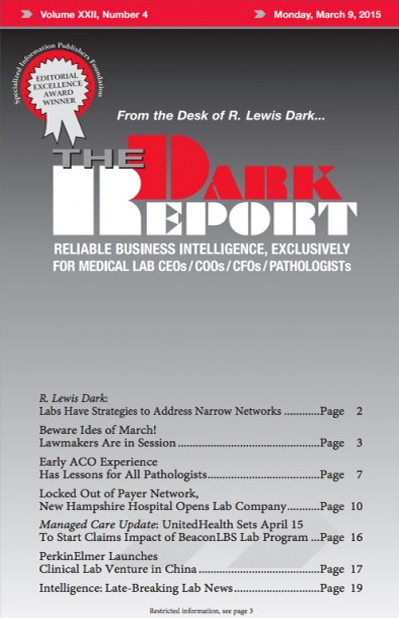CEO SUMMARY: To date, many of the nation’s 500 accountable care organizations have launched with little involvement by independent pathology groups and clinical laboratories. That was not the case with an ACO in Alabama, however. From its inception in 2012, the ACO has contracted with CytoPath, P.C., a five-pathologist group in Alabaster, Alabama. CytoPath’s pathologists are currently paid on a fee-for-service basis and must provide detailed and timely data to the ACO.
To access this post, you must purchase The Dark Report.


